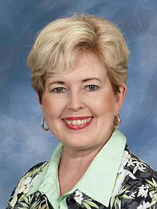
by Steve | May 20, 2013 | Magazine, May-June 2013, Uncategorized
By Stan Self
A standard missiological approach is to divide people of the world into groups in order to be more strategic in our approaches to presenting the gospel and making disciples. Depending on the goal, the division may be by language, dialect, ethnicity, caste, nationality, culture, religion, politics, or any combination thereof.

Stan Self
Two of the most significant missiological divisions begin with the prefix un, meaning not. The first is the Unreached. These are people groups who, as yet, do not have enough followers of Christ among them to start and maintain an indigenous movement to Jesus. A required threshold for such a movement is thought to be at least two-percent evangelical Christian or five-percent Christian adherents within a particular group. Mission research points to 6,953 such Unreached People Groups around the world.
The second group is the Unengaged. These are people groups that are not only unreached but also devoid of any active church planting effort. According to the same research, there are 3,104 Unengaged Unreached People Groups. In the last two and a half decades there has been a good deal of focus on these two groups. Yet, in spite of this increased attention, roughly 30 percent of the world’s 7.1 billion people have not been reached with the good news of Jesus Christ.
Sadly, there are three additional missiological uns that are having a profound impact on the state of the Unreached and Unengaged and are at least partly responsible for their existence.
1. Uninformed. There is an amazing paucity of knowledge vis-à-vis the state of world missions in most local churches. Even those whose interest is high enough to attend one of The Mission Society’s Global Outreach Workshops are surprised to learn that the percentage of those in the world who would consider themselves Christian is less today than a century ago. Or that China will soon overtake the United States as the country with the most followers of Christ. Or that South Korea sends out more missionaries per capita than any other country. Moreover, many are amazed to find the Bible repeatedly states God’s desire that all peoples of the world come to know him and as his followers we are to take that message to them.
2. Unconvinced. Even in churches where effort has been expended to increase the knowledge of global missions, there are still some who are skeptical of the need or that they could be part of the solution. Such people typically think that missions is a job for someone else. They often think the task is too overwhelming, is only for the professional clergy or missionary, or that they could not possibly have any significant impact.
3. Unconcerned. To this third group, church is about family, fellowship groups, softball, picnics, fall festivals, and Sunday worship. They are so internally focused they are oblivious to the needs of the world. The Great Commission given by our Lord has simply never intersected their lives and certainly not their hearts. They are okay with the fact that there is a line item in the budget for missions and that there is this small group on the missions committee that has an interest in faraway places but it really has no bearing on them.
Most of these men and women are where they are because no one has ever suggested their world view should be tweaked. No one has ever told them that Jesus was including them when he gave the Great Commission.
Ironically, if local churches would begin to take it upon themselves to eradicate the uninformed, unconvinced, and unconcerned from their midst through solid missiological teaching and experience, that would go a long way in helping to eradicate the Unreached and Unengaged around the world. To do otherwise would be unpleasing to God.
Stan Self is The Mission Society’s senior director for church ministry.

by Steve | May 20, 2013 | Magazine, May-June 2013
Nationwide, news outlets have reported on a lone United Methodist congregation in North Carolina that has chosen to stop performing heterosexual weddings in its sanctuary. According to the congregants, they are protesting the position of The United Methodist Church and the state of North Carolina.
 Out of the more than 35,000 United Methodist congregations in the United States, a handful of these churches have chosen to withhold the sacrament of marriage to heterosexual couples as a protest.
Out of the more than 35,000 United Methodist congregations in the United States, a handful of these churches have chosen to withhold the sacrament of marriage to heterosexual couples as a protest.
The United Methodist Church has always believed that marriage is the “union between one man and one woman.” Originally affirmed in 2004, the issue has been voted on several times and the denomination has overwhelmingly reaffirmed its biblical position regarding traditional marriage.
Despite the publicity of newspaper headlines and internet reports, the protest of the congregation in North Carolina and other isolated congregations will not be changing the denomination’s stand on marriage. United Methodism is a global Christian church and is supportive of the traditional and sacred definition of marriage.
United Methodism was the first and only mainline denomination to be on record supporting traditional marriage.
So as to make its stance unmistakably clear, United Methodism does not allow its ordained ministers to perform weddings, unions, or commitment ceremonies for same-sex couples – even in states where it is legal.
Global United Methodism also voted to specifically not allow its sanctuaries or buildings to be used for such ceremonies. Delegates to the General Conference – the only entity to officially speak for United Methodism – established a standard that would allow for a minister to be defrocked for performing a same-sex union or wedding.
In 2008, the General Conference reaffirmed that marriage is between a man and a woman by stating:
“We affirm the sanctity of the marriage covenant that is expressed in love, mutual support, personal commitment, and shared fidelity between a man and a woman. We believe that God’s blessing rests upon such marriage, whether or not there are children of the union. We reject social norms that assume different standards for women than for men in marriage. We support laws in civil society that define marriage as the union of one man and one woman.”

by Steve | May 20, 2013 | Magazine, May-June 2013
Disappointment
I’m disappointed in the way Good News defines – and then forgets – the concept of “open” in the March/April issue. Rob Renfroe opens the issue with the definition, “Being open is the virtue of admitting that no matter how much we may know, we still have much to learn.” Alas, that definition is ignored later when it condemns Bishop Sally Dyck for inviting our Church to rethink its position on gay marriage.
That some, including Good News, believe the issue is settled does not make it so. Bishop Dyck simply invites Christ’s open-minded followers to live out the reality “that no matter how much we may know, we still have much to learn.” Members of God’s vital Church, using our Living Bible, must never be afraid to challenge ideas created by the human mind.
William A. McCartney
Delaware, Ohio
Appreciation
I wanted to write and say how much I appreciated the letter from Byron Fitch published in the March/April 2013 Good News. It is such a blessing to see someone stand up for what God’s creation and the Bible says about homosexual activity. I have been on the verge of leaving The United Methodist Church because of their on-the-fence stance on same-sex activity. Under no imagination would God consider that a marriage. If the church is lukewarm, God will spew us out.
Carolyn Holmquist
via email
Hope
You are the hope of The United Methodist Church.
Louise Spann
Irving, Texas
Blessing
God bless your very important work! Stay strong in these troubled times.
Margaret Moore (Retired UM missionary to Korea)
Wilmore, Kentucky
Both benefit
Regarding “Welcoming the Foreigner” from Jim Ramsay in the March/April issue, if Christians befriend Muslims in our local community, we will try to convert them to Jesus because most Christians believe that non Christians go to hell. The Muslims will try to convert Christians to Islam because they believe non Muslims go to hell. Unfortunately, both are wrong. If we show them the virtues of Christianity and they admire and respect our values, and we see the virtues and goodnews in their godly lifestyles, we can both benefit, because Jesus has historically made and is making and will continue to make intercession for whoever he wills.
Robert G. Varkonyi
Orlando, Florida
Back bone
We want you to know how much we appreciate Rob Renfroe’s editorial in the March/April issue. Also, the article on the Apostle’s Creed by Jessica LaGrone. It as always bothered us that we no longer say the Creed in our church. It is the backbone of my Christian faith. Keep up the great work.
William and Phyllis Bidlack
Oakwood, Ohio

by Steve | May 20, 2013 | Magazine, May-June 2013
By Duffy Robbins
Erin wasn’t excited about the four group sessions scheduled for the Winter Retreat Weekend. She didn’t really consider “the religious stuff” at youth group to be all that interesting. But she was willing to go along anyway because a lot of her friends were going, there was going to be a ski slope, and her parents were not going to be there.

Duffy Robbins
In effect, Erin is at what might be described as the Grow Level of spiritual commitment – students within our program environment who are willing to submit themselves to spiritual growth. It probably represents the commitment level of a majority of the teenagers in most of our youth ministries.
Targeted (or Intentional) programming begins with a simple notion: Effective youth ministries meet kids where they are – wherever they are – in the odyssey of faith. They think about where their students might be in their various faith journeys and then they intentionally develop and target programs that meet them in that place.
In the last issue of Good News, part two of our series on Targeted Programming, we looked at what we described as the Come Level of spiritual commitment. That would be more typical of Erin’s boyfriend, Peter. He chose not to go on the Winter Retreat. He loved snowboarding and he really liked Erin, but he had an acute allergy to spiritual matters. He decided to take a pass. He reasoned that four Bible studies was too high a price to pay even if it meant being close to his favorite sport and his favorite girlfriend.
Grow Level kids aren’t hungering and thirsting for spiritual growth, but they are willing to tolerate it… if food and friends or some other payoff is part of the package! It may be more accurate to say: they aren’t hungering and thirsting for the Word; they’re just hungry and thirsty! They haven’t come to youth group to study Ruth and Paul, they’ve come to study Russ and Katie. Oh sure, they may expose themselves to some “Bible lesson” or “small group deal,” but they’re willing to tolerate the spiritual input only to reap the payoff of an atmosphere they enjoy. That is the difference between students at the Come Level and students at the Grow Level. Grow Level kids are, at least, willing to tolerate spiritual growth.
Wise youthworkers will be grateful for both students. Intentional youthworkers will affirm both teens for where they are, while praying and working to take them both to deeper levels of commitment. One of the stunning traits of Jesus’ ministry was his willingness to care about, love and relate to people not because they had expressed spiritual interest, but simply because they were people – people created by God and loved by God.
Because so many of our students are typically at the Grow Level in their spiritual commitment, we probably would do well to remember that willingness to grow is not the same thing as commitment to growth. We should not assume that a teenager at weekly Bible study is hungry for spiritual food and willing to take the initiative to get it. That’s a consideration to remember in preparing weekly Bible studies for youth group. That doesn’t mean we should shortchange Bible study in favor of “fun and games.” It means we shouldn’t equate presence with interest. Getting kids in the room is only half the battle. The key to building in Grow Level students a deeper faith is meeting them where they are, but then enticing them, provoking them and challenging them to go deeper. Their presence gives us an opportunity; it does not give us their attention span. We’ll have to earn that by speaking to their needs, in their language, in ways that make sense to them. But, at least they’re in the room; it’s hard to hear from the outside.

by Steve | May 20, 2013 | Magazine, May-June 2013
By Rebekah Lyons
My head snapped up from the pillow at the sound of my daughter calling my name from downstairs. Good Luck Charlie had ended, and my job needed to start again. More than fifteen years removed from my napkin dreams, I was running fast. I’d been given a front-row seat on a rickety wooden roller coaster motoring on a never-ending loop. Twisting, turning, backward, forward. Straining to find my bearings, but never slowing enough to compose myself. Going in circles, but never finding my dreams.
 If we ignore the yearnings of our souls, we atrophy, and our dreams die. Sadly, many of us choose this descent because we believe it’s safer. If we don’t hope, we won’t be let down. If we don’t imagine, reality won’t disappoint. Either way, we avoid pain.
If we ignore the yearnings of our souls, we atrophy, and our dreams die. Sadly, many of us choose this descent because we believe it’s safer. If we don’t hope, we won’t be let down. If we don’t imagine, reality won’t disappoint. Either way, we avoid pain.
These destructive tendencies seem to afflict women in particular. Since 1988, the use of antidepressant drugs has soared nearly 400 percent, and women are 2.5 times more likely than men to take them. Twenty-three percent of women ages forty to fifty-nine regularly take these drugs, more than in any other demographic. Nearly one in four. A devastating statistic. Why the struggle? Why the heaviness?
As for me, I wondered: Is this just seasonal depression? Or will it linger? My faith was flailing. The gloom lifted by spring, but the lurking shadow reminded me that January would come again. I think perhaps the anticipation of the darkness returning was as precarious as when it settled.
A friend recently confessed through tears that she struggles with bitterness. Her life doesn’t look the way she’d hoped it would. She couldn’t reconcile how her life—looking so successful on the surface—disguised the aching void that brings her tears the moment she opens her balled fists.
Are we grieving because our lives don’t look the way we imagined in our youth? Do we pressure our children to reach their potential because we aren’t living up to our own? Are we spending every moment cultivating the lives of everyone . . . but ourselves?
Women are stars fading behind the dark shadow of those we care for, and we often look a little worse for wear. Our light is dimmer than it used to be as we find ourselves unable to dream beyond our current reality.
So we compromise. My childhood dreams were just that—dreams. I should let them go. We push down any hope when we sense it emerging. The desire for change uncovers what terrifies us most: failure.
Then we go numb. We tell ourselves a quick fix will do just fine. Whatever will keep our heads above water—whatever will allow us to keep making lunches, paying the bills, getting through sex, doing the kids’ carpool, working out, pursuing that career, and so on—will just have to do. We don’t want to become the crazy lady at the bus stop, so we think to ourselves, Just give me the shortcut. Then I’ll be okay.
Perhaps most alarming are the many women who don’t see past their manicured lives—grasping for society’s definition of being “put together.” We have pretty ways of masking our lack of meaning, using all kinds of beauty products and retail therapy. We have homes to furnish and decorate, then redecorate once we tire of what we have. We keep up with fashion styles, throw and attend parties, and maintain a rigorous pace. While these are all delightful and beautiful and often worthy goals, using them to conceal our unfulfilled lives is dangerous.
Some women uncover their talents before having kids and then shelve them while raising their children. They’ve experienced a sense of fulfillment in living out their purpose but believe they must set aside their pursuits for the sake of motherhood. They’ve bought into the belief that their gifts and child rearing are disparate parts, unable to coexist. Instead of fighting to figure out the balance, they stuff their dreams in a box marked “Motherhood.”
Other women never identify their purpose before having children. Parenthood sets in and can unknowingly become the excuse to stop cultivating their dreams. Instead, they place their quest for significance on the lives of their children (as we see played out on Facebook every day). But this suffocating pressure is too much for anyone to bear, much less a five-year-old.
In either case, the displacement of a mother’s purpose (beyond child rearing) becomes a huge loss to our communities. If women aren’t empowered to cultivate their uniqueness, we all suffer the loss of beauty, creativity, and resourcefulness they were meant to inject into the world.
Can a mother chase the dreams that stir her heart and simultaneously raise her children? Can a woman chase the dreams that stir her heart when life gets in the way?
The masks need not remain. The fading is teaching us to turn from trying to prove to each other that we have everything together to letting our wounds show. We speak words that ring out in the air and just sit there. Moments of sharing and pain and desperation. Desperation to be heard, to be understood, and to know we are still in this life together. The years give us new perspective and freedom to be honest. In these settings, an echo keeps surfacing. Struggle, responsibility, pain, and in the midst of it all, faith.
Aging is paradoxical: the older we get, the less we are sure of. All we hope for is the courage to keep walking. And our understanding of God’s grace takes new shape for us. Our hearts stumble into unknown territory as our lives twist and turn. Yet we aren’t sure how to respond.
We thought we had faith figured out before, when life was a negative in black and white. But now that we see in full color, the image has faded. Clarity left long ago when we were held in the tension between seeing how things ought to be in contrast with how they really are. We freefall because we never figured out what makes us fly.
We stopped dreaming.
I’m riveted by the scene in The King’s Speech when Prince Albert, Duke of York, delivers a discourse to a large crowd on a dreary London day in 1930. He stutters conspicuously, and the crowd squirms in their seats. Out of desperation to defend her husband’s reputation, the Duchess of York travels to a dilapidated part of town to locate Lionel Logue, a speech therapist. He has Bertie (his affectionate nickname for Albert) wear headphones and listen to blaring classical music while reading Shakespeare’s well-known soliloquy from Hamlet. Lionel records Bertie’s voice as he stutters through the famous first phrase—“To be or not to be”—but Bertie’s final frustration drives him out of the room, recording in hand, shouting, “What’s the use?”
Bertie hides the vinyl recording in his desk drawer. Just out of reach. But he knows it’s still there. After a week passes, Bertie pulls out the record and listens. As his smooth, liberated speech echoes out of the speaker, he is dumbfounded, amazed by the gift he possesses. He hears words of conviction soaring without stutter. Beautiful like music. His wife bears witness. An epiphany. They promptly return to Lionel in secret to continue working. Hope is springing forth.
Too often we live with our talents hidden in the desk drawer. Just out of reach. We’ve tucked them away. Refusing to listen. It hurts too much to hope. So we go on with our lives, not allowing ourselves to go near that drawer.
“We arrive in this world with birthright gifts—then we spend the first half of our lives abandoning them or letting others disabuse us of them,” Parker Palmer writes in Let Your Life Speak. “Then—if we are awake, aware, and able to admit our loss—we spend the second half trying to recover and reclaim the gift we once possessed.”
Rebekah Lyons lives in New York City with her husband, Gabe, and their three children. Find her @rebekahlyons on twitter and rebekahlyons.com. Alongside Gabe, Rebekah serves as cofounder of Q Ideas, a nonprofit organization that helps Christian leaders winsomely engage culture. This excerpt is from Freefall to Fly: A Breathtaking Journey Toward A Life of Meaning by Rebekah Lyons. Reprinted by permission of Tyndale Publishers.

by Steve | May 20, 2013 | Magazine, May-June 2013
By B.J. Funk
The New World Dictionary defines sleepwalking as “the act of walking while asleep.” I have known a few people like this in my life. Have you? They sleep while they are walking. Every day. To work. From work. In their home. They are never fully awake and alive to the excitement of living.

B.J. Funk
Specifically, some Christians fit neatly into this definition. They never seem to be alive to the soul-changing gospel that supposedly, at some point or another, woke them up to new possibilities and changed them from their self-serving ways. What happened after they “accepted Christ?” Was anything different? Or, did they go to the altar, make a confession of their sins, claim to be “born again,” and then sink back into a stupor of sleep, closing their eyes as they moved in and out of their days?
I am continually puzzled by the lack of love in these sleep-walkers. For example, let’s move with some of them to the local deli for lunch on Sunday, right after walking out of church. A young girl who works there told me last week that “Church folks are the meanest people standing in line. They are rude and demanding. And, they’ve just gotten out of church!” Waiters in restaurants add their complaints, “You should see how mean those church-folks are as they wait for their meal! It’s like they think they have some sort of special privilege, just because they are Christians. And tips? Well, you can know for sure that church-folks are the very worst tippers.”
This kind of summation of “church-folks” should make us cringe. I don’t want to be a church-folk. Do you? I want to be a Christian-folk. I want to be a Christ-follower, a born-again, changed forever believer. Is there a difference in church-folks and Christian-folks?
In his book Walking with Christ in the Details of Life, Patrick Morley helps us see this a little clearer when he writes, “The partially surrendered life may be Christian in spirit, but it is secular in practice. It may save one’s soul, but it hardly leaves a noticeable ripple on one’s lifestyle, life view, or the world and culture in which we live. Of what earthly value is Christianity if it leaves no indelible mark on one’s lifestyle? It is of no value in this life to be Christian, if you do not think Christianity — if you do not have a Christian life view.”
Morley goes on to define the problem. “It is the proposition that Jesus can be Savior without being Lord. It is the idea that one can add Christ, but not subtract sin,” he writes. “Many of us have merely added Christ to our lives as another interest in an already busy and otherwise overcrowded schedule. This sort of thinking has watered down the meaning of a personal relationship with Christ.”
What makes us think that we can give Christ the key to only part of our hearts? Who gave us the right to love some people and treat others with contempt? Who told Christians where to line up for a pass to forgo forgiveness? Where are Christians getting free tickets granting permission to hold a grudge? Which convenience store sells Christians a ticket to scratch, with hope of getting the winning ticket that states it is okay to be unkind?
Could it be that casual Christianity is winning? Somewhere this “do-whatever” message is trumping the true message of Christianity. Christians are learning to blend into the world, not to make a difference, not to consider sin.
I love to visit the writings of slain missionary Jim Elliott. He causes me to put down my designer bag, step out of my shiny patten leather shoes, and walk barefoot with Jesus on the dusty roads of Galilee, touching lepers along the way. Jim went to Mexico to visit missionaries and to begin learning Spanish. While there, he wrote, “Missionaries are very human folks, simply a bunch of nobodies trying to exalt a Somebody.” Around 1948, Jim wrote in his journal these words: “God, I pray thee, light these idle sticks of my life and may I burn for Thee. Consume my life, my God, for it is Thine. I seek not a long life, but a full one, like you, Lord Jesus.”
His words were prophetic. He and four other young missionaries were murdered in the jungles of Ecuador as they sought to bring the gospel to primitive savages. After their deaths, no one in their families lined up for free tickets to hold a grudge, to be unkind or to forgo forgiveness. They lined up to spread the gospel, at whatever cost. Amazing stories of conversions eventually came from their deaths.
On any given Sunday, the line at the Deli has sleepwalking Christian folks needing a reminder that they are, like you and me, simply a bunch of nobodies trying to






